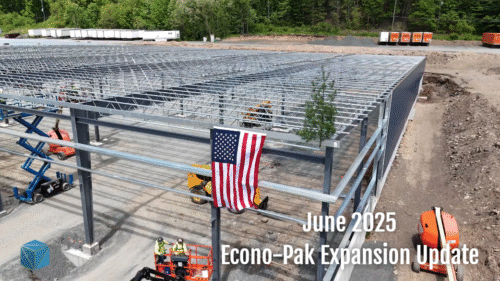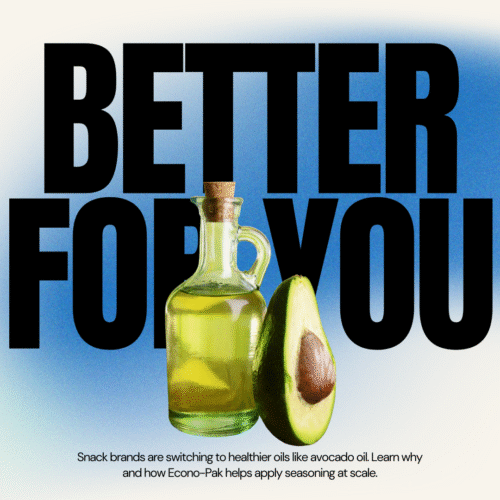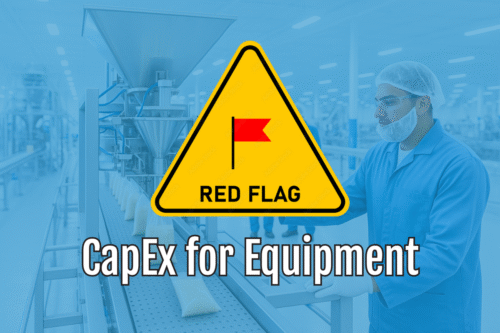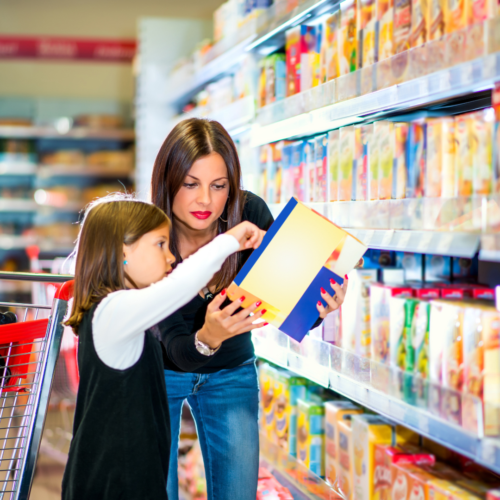How Does Co-Packing Work?
 Contract packaging, otherwise known as co-packing, involves outsourcing your product production, packaging, and sometimes even distribution to an expert partner. Let’s dive into the specifics of co-packing, including how it works, its many advantages, and how to get started.
Contract packaging, otherwise known as co-packing, involves outsourcing your product production, packaging, and sometimes even distribution to an expert partner. Let’s dive into the specifics of co-packing, including how it works, its many advantages, and how to get started.
The Basics of Co-Packing
Co-packing is when a business hires another company to handle its production and packaging operations. The two main parties involved in a co-packing arrangement include:
- The brand owner. The brand owner is responsible for conceptualizing the product and holds the brand name. They also retain all intellectual property and marketing rights to their product.
- The co-packer. The contact packaging provider turns the brand owner’s concept into a tangible product, handling everything from production to packaging.
Contract packaging can often include private labeling, wherein the co-packer produces the product under your brand name. It can also encompass contract manufacturing, which involves producing a brand’s products based on their required specifications.
The Co-Packing Process & How to Get Started
So, how do you get started with co-packing? It’s important to first make sure that your business has a need for it. Companies typically turn to co-packing when they experience increases in product demand, require production scalability, or wish to focus on their core competencies while benefiting from a packaging expert.
Once you determine that co-packing is right for you, the next step is to choose the right contract packaging provider. To ensure you select the right co-packer for your needs, be sure to evaluate their capabilities, quality standards, capacity, location, markets served, and cost. After you’ve found an ideal partner, you can work with them to establish clear terms and agreements that detail responsibilities, pricing, and other expectations.
From that point on, the co-packing process typically involves the following steps:
- Product development & formulation. This stage involves developing your product, including ingredient selection and packaging design creation. During this process, effective collaboration between the co-packer and brand owner is critical in ensuring the finished product aligns with the brand’s vision.
- Production and quality control. The co-packer handles every aspect of the production process, as well as quality control. Implementing quality control measures during this stage is important in ensuring product consistency and adherence to any necessary standards or regulatory requirements.
- Packaging and labeling. During the packaging phase, the co-packer selects the appropriate contract food packaging materials and ensures all labels adhere to regulatory standards. Labels should include information such as ingredient lists, allergen warnings, and nutritional information.
- Storage and distribution. Co-packers often provide inventory management services, which are key to ensuring a seamless supply chain. Depending on the agreed-upon terms, your co-packer may also handle distribution.
Throughout all phases of the co-packing process, it’s important to maintain open communication. This helps to build trust and foster a long-lasting relationship.
Advantages of Co-Packing
Co-packing offers numerous benefits, including:
- Cost savings. Contract packaging can result in significant cost savings for companies. By outsourcing their production and packaging operations, businesses avoid having to invest in costly equipment, facilities, and labor.
- Expertise and efficiency. Co-packers are experts in their industry, offering specialized equipment and knowledge. This leads to improved production efficiency and product quality.
- Co-packing enables businesses to easily scale production to keep up with shifting demands, whether you require large-scale production or small-batch runs.
- Focus on core competencies. Delegating production and packaging processes to a third-party company allows businesses to focus on their core competencies, such as product innovation, marketing, and brand development.
Outsource Your Food Packaging With Econo-Pak
Co-packing is a great solution for businesses looking to improve efficiency, focus on other areas of their business, and benefit from specialized packaging expertise. At Econo-Pak, our contract food packaging solutions can meet nearly any packaging requirement. We work with businesses of all sizes and prioritize getting your products to market quickly and efficiently. With over 240,000 square feet of production floor space and 200 different packaging machines, we can handle projects of all sizes and scopes.
For more information about co-packing, or to work with Econo-Pak for your contract food packaging needs, request a quote today.
Let's start scaling.
Is your demand outpacing your ability to package your own product? Then consider outsourcing with Econo-Pak.
With over 40 years of experience working with both small brands and Fortune 500 companies, we are capable of handling your specific dry food product.
Get in touch with our team for a fixed-price quote for your project.




